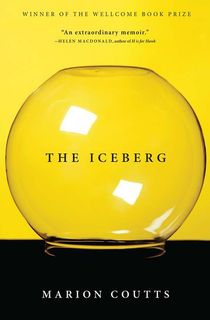It’s a subject that few people want to think about, much less talk about—but these writers recognize that death is a major part of life, whether we’d like to admit it or not.
Through their powerful books on death and grief, whether it be their own experience or tracking the stories of those closest to them, they empower us to embrace our own mortality, and to open up a conversation on what it means when we’ve reached the end.

The Year of Magical Thinking
One of the most famous books on death and grief, this Joan Didion book was written during her daughter's hospitalization and shortly after the death of her husband. As Didion wrote, the work is an exploration of the “weeks and then months that cut loose any fixed idea I ever had about death, about illness ... about marriage and children and memory ... about the shallowness of sanity, about life itself."
As it often did, Didion's openness resonated with readers. The book became a bestseller and won the National Book Award for Nonfiction.

The Violet Hour
Critic and essayist Katie Roiphe takes on the last days of some of her favorite writers, including Susan Sontag, Sigmund Freud, John Updike, Dylan Thomas, Maurice Sendak and James Salter. Whether the end was sudden (Thomas), prolonged (Updike), or if the subject in question was in complete denial (Sontag), Roiphe approaches her unconventional subject with the eye of a critic, leading to an expertly researched book that will lead you to rethink the ways in which we deal with the worst (and inevitable) kind of news.

When Breath Becomes Air
As a doctor, Paul Kalanithi dealt with life and death on a daily basis. But just as he’s nearing completion on his training to become a neurosurgeon, he learns he has stage IV lung cancer. As a young man, Kalanithi had entertained aspirations of becoming a writer. With his diagnosis, he realizes there’s no time like the present. When Breath Becomes Air is the moving account of his last months, and the difficult choices he and his wife faced as they grappled with his impending mortality.

The Iceberg
Marion Coutts’ memoir of her art critic husband’s illness and subsequent death from a brain tumor will cut you to the quick. Her spare, unflinching prose chronicles her husband’s decline—as he loses the power of language, he and Coutts two-year-old son is just starting to discover it. This gut-wrenching memoir is a devastating reminder of how precious life is, and a beautiful reiteration of the importance of art in the face of death.

Gratitude
Neurologist and writer Oliver Sacks died earlier this year of brain cancer (that had spread from a melanoma in his eye)—but the devastating diagnosis didn’t stop him from writing a series of reflections, collected here, on coming to terms with his own death. “It is the fate of every human being,” Sacks writes, “to be a unique individual, to find his own path, to live his own life, to die his own death.”

Being Mortal
Surgeon Atul Gawande has made it his life passion to chronicle the state of patient care and quality of life in his second career as a writer. In Being Mortal, he asks tough questions about the American healthcare system that operates on the premise that life must be sustained at whatever cost. Through the stories of real-life patients, Gawande asserts that medicine should be about giving patients a rich and fulfilling life—and a good death.





